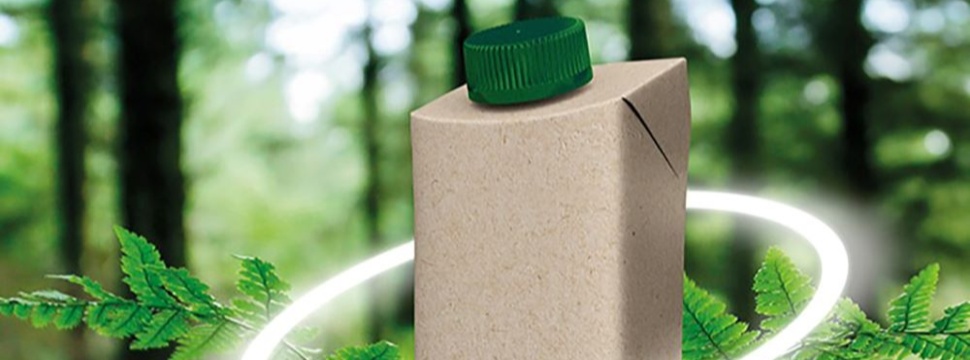SIG commits to producing aseptic cartons with increasing fiber content to over 90% to enter paper recycling stream
News General news
SIG is to raise the proportion of fiber in its aseptic carton structure. The company plans to develop a full-barrier aluminum-free aseptic packaging structure with at least 90% fiber content by 2030, with an interim target of at least 85% by 2025.

Increasing the FSCTM-certified (Forest Stewardship CouncilTM) fiber content of its aseptic cartons and expanding its aluminum-free solutions are key to SIG’s strategy of achieving higher recyclability of carton packs.
This supports SIG’s ultimate ambition to enable carton packs to be recycled anywhere in the world, which is especially true for markets that have little established infrastructure for recycling.
Samuel Sigrist, CEO at SIG: “Our carton packs have a low energy intensity, are produced with 100% renewable electricity, and consist predominantly of renewable resources from the forest. Now we want to take this even further by increasing collection and recycling of cartons through existing beverage carton recycling systems, and via paper streams. Increasing the proportion of fiber content in aseptic cartons opens this opportunity and aligns with the wider trend towards paperization in the packaging industry. The FSC-certified renewable paperboard used in our packs ensures that we are promoting responsible forestry practices that prioritize biodiversity conservation.”
The packaging industry and wider society need to transition to a circular economy, as our planet’s resources are finite and its capacity to absorb waste is limited. Growing consumer demand for more sustainable packaging is an important pull factor for food and beverage companies to transition to ever more sustainable packaging.
SIG’s new commitments are an important step in the company’s journey to create packaging for better. Packaging that gives more to people and the planet than it takes out. This means removing more carbon from the atmosphere than is emitted during the lifecycle of the packaging. It also means packaging that is made from endlessly renewable or recycled materials and that is fully and easily recyclable anywhere in the world.










